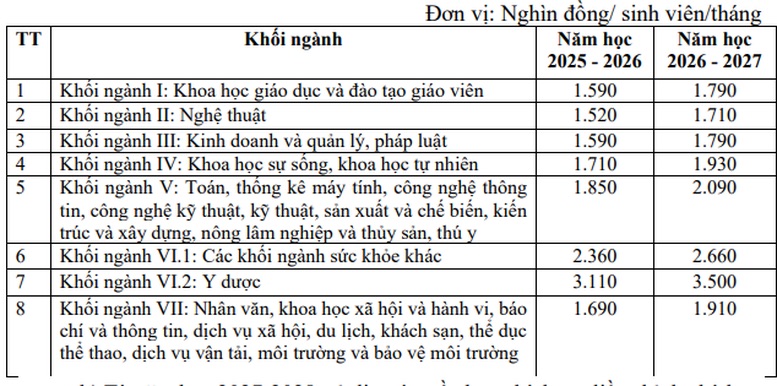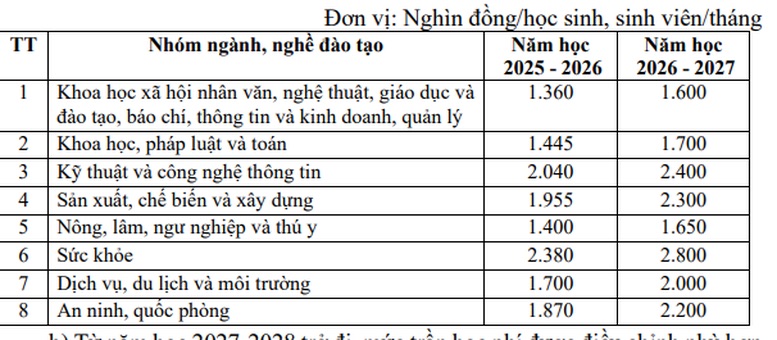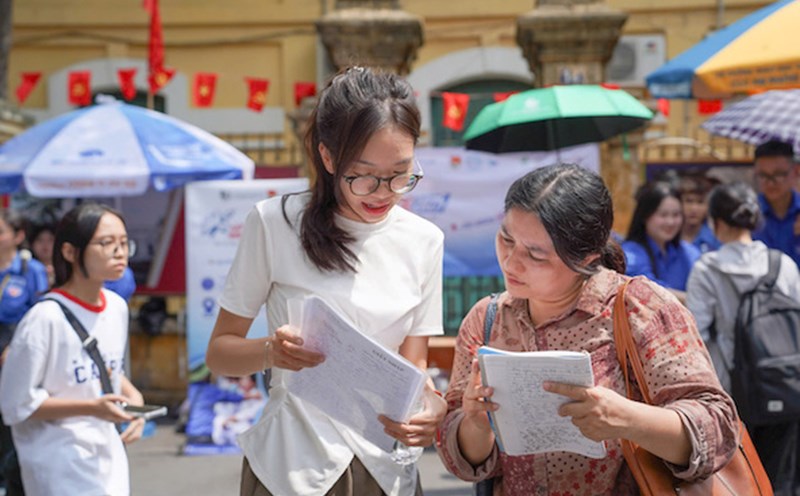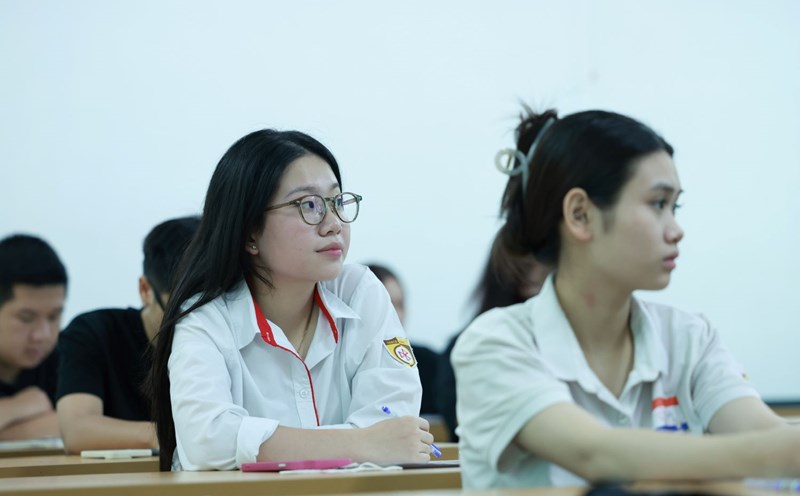The Ministry of Education and Training is seeking opinions on the draft Decree regulating the mechanism for collecting and managing tuition fees for educational institutions in the national education system and policies on tuition exemption, reduction, support, and study costs; service prices in the field of education and training.
Tuition fees for public higher education
The draft clearly states that the tuition ceiling for public higher education institutions that have not yet covered their regular expenditures from the 2025-2026 school year onwards is as follows:

From the 2027-2028 school year onwards, the tuition ceiling will be adjusted in accordance with people's ability to pay and socio-economic conditions, but at most not exceeding the increase in the consumer price index at the time of determining the tuition fee compared to the same period last year announced by the competent state agency.
Public higher education institutions self-guarantee regular expenses: The tuition fee is determined to be at most 2 times the tuition ceiling of an institution that does not self-guarantee regular expenses.
Public higher education institutions self-guarantee regular and investment expenses: The tuition fee is determined to be at most 2.5 times the tuition ceiling of an institution that does not self-guarantee regular expenses.
For training programs of public higher education institutions that meet the quality assessment level of training programs according to standards prescribed by the Ministry of Education and Training or meet the quality assessment level of training programs according to foreign standards or equivalent, higher education institutions shall base on the economic - technical norms or cost norms of each major and training profession issued by the educational institution to decide on tuition fees; publicly implement to learners and society.
Tuition fees for vocational education
According to the draft, the tuition ceiling for college and intermediate training programs at public vocational training institutions that have not yet guaranteed regular expenditures from the 2025-2026 school year onwards is as follows:

From the 2027-2028 school year onwards, the tuition ceiling will be adjusted in accordance with people's ability to pay and socio-economic conditions, but at most not exceeding the increase in the consumer price index at the time of determining the tuition fee compared to the same period last year announced by the competent state agency.
For public vocational training institutions that self-insure regular expenses: The maximum tuition fee is not more than 2 times the tuition fee of a facility that does not self-insure regular expenses.
For public vocational training institutions that self-insure regular and investment expenses: Proactively develop and decide on tuition fees according to the provisions of the Law on Vocational Education and other relevant documents.
For high-quality training programs and programs transferred from abroad for vocational education, vocational training institutions shall base on the economic - technical norms or cost norms of each major and vocational training issued by the vocational training institution to decide on the specific tuition fee collection for each school year, major and vocational training under their management authority and make public before enrollment.
At the same time, it is necessary to maintain standard training programs within the state tuition ceiling to perform the function of providing public services and ensuring access to education for learners.











